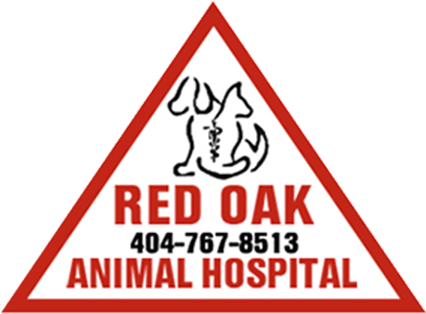Canine Chronic Arthritis Management
Canine Chronic Arthritic Pain Management
Osteoarthritis is a term used to describe chronic degenerative joint disease characterized by inflammation within the joint, thickening of the joint capsule, erosion of joint cartilage, and new bone proliferation. Medical management of osteoarthritis is aimed at reducing pain and increasing mobility. Osteoarthritis is managed, not cured.
- Maintain an ideal body weight: This is the most critical aspect of managing osteoarthritis pain and we are happy to help come up with a thorough diet plan to help achieve this for your pet.
- Exercise restriction: It is very important that arthritic dogs be exercised regularly, but that they only perform light to moderate exercise. Avoid high impact activity such as running, jumping, or fetch. Instead, encourage short, controlled leash walks and activities like swimming. There are physical rehabilitation centers for dogs in our area if you are interested. Further, we are happy to discuss ways to increase mental stimulation and decrease boredom while your pet is unable to do strenuous activity.
- Environmental Modification: Just as with people who have mobility issues, it’s important to modify the home environment to help your pet. Slippery floors are particularly challenging on older and arthritic dogs and we recommend using temporary yoga mats or area rugs to help them maneuver. Further, provide comfortable beds low to the ground that are easy to access and restrict access to stairs and high furniture.
- NSAIDs: Non-steroidal anti-inflammatory medications are potent relievers of pain and are often used as a first treatment option due to their efficacy and low risk of side effects. However, NSAIDS can cause GI ulceration (resulting in vomiting and anorexia) and rarely liver and kidney disease. The risk of side effects is greatly diminished if a pet is well hydrated (add water to their meals) and the medication is not given if there is even slight evidence of upset stomach (not eating well, vomiting or having diarrhea). It is recommended but not required that pets using NSAIDS have their blood work monitored at the time of starting therapy and every 3- 6 months. These medications can be used continuously or as needed and it is optimal to pre-emptively give these medications rather than to use them only when seeing signs of pain.
- Other pain medications: There are several other types of pain medications that can offer pain relief when used alone or when combined with NSAIDS. We will help you determine if your pet would benefit from these additional types of medications and which would be best.
- Supplements and alternative therapy
- Laser: For animals experiencing localized pain, class 4-laser therapy can progressively relieve pain and reduce inflammation. This is typically a series of treatments, every other day until your pet shows signs of improvement. We then reduce the frequency. Often such treatment eliminates the need for pain medication once the swelling is gone.
- Adequan, an injectable form of Chondroprotectant agent (protects cartilage), can be very effective, but also expensive. Initially, this medication is given twice a week for one month and then weaned down to as little as once a month after the condition stabilizes. We can easily teach you to give these injections at home or our technicians can give the injections for a nominal fee.
- Physical Therapy is another way to strengthen the muscles around the bone to alleviate pain. An Underwater Treadmill (warm water swimming) is available in some local rehabilitation centers and produces great results (we can make this referral for you).
- Supplements are an excellent way to try and reduce the need for true pharmaceuticals over time and to improve your pet’s comfort in both the short and long term. The supplements with the most efficacy include combinations of glucosamine, chondroitin, and methylsulfonylmethane (MSM); New Zealand green-lipped mussel extract; and very concentrated, high doses of concentrated fish oil (EPA and DHA). Further, there is emerging evidence that a full spectrum blend of cannabinoids can be helpful, but these products must be from a reputable manufacturer.
- Not all over the counter supplements and nutraceuticals are created equal as they are not FDA regulated and not required to have testing or approval prior to being put on the market. We recommend using products like Dasuquin Advanced (Glucosamine/Chondroitin/MSM), Osteo (Green-lipped mussel extract), Welactin Advanced (concentrated fish oil), and/or Endoblend (full spectrum CBD). These products are made by reputable manufacturers with appropriate clinically proven dosing and have been consistently shown through independent analysis to carry the amount of each ingredient as claimed on the bottle. Other reputable supplements will carry the National Animal Supplement Council (NASC) quality seal as an indicator that they have been independently verified, but may not dose appropriately.
There are certain diets that contain glucosamine, chondroitin and omega 3 fatty acids. Some pets greatly benefit from the Science Diet J/D which is a prescription diet. In general, supplements can take 4 – 6 weeks to see the effect. - Acupuncture or a chiropractic medicine can be helpful in certain conditions. We can refer you to specialists that work with animals
Finally, there are numerous websites, including pet food advisors, as well as pet store employees that are misdirecting clients, providing misleading information, and providing opinion based information without the proper scientific evidence to guide such an important choice in your pets life.
Phone:
Address:
4895 Ben Hill Road, College Park, GA 30349
Content, including images, displayed on this website is protected by copyright laws. Downloading, republication, retransmission or reproduction of content on this website is strictly prohibited. Terms of Use
| Privacy Policy
